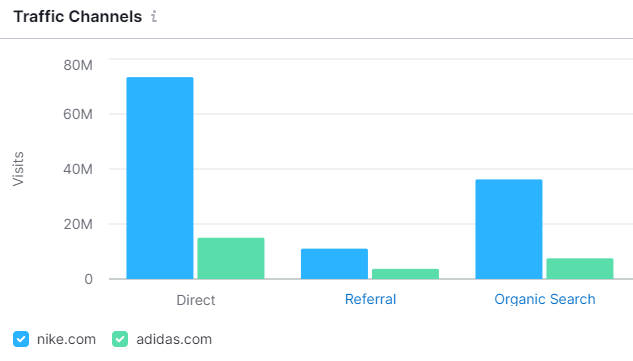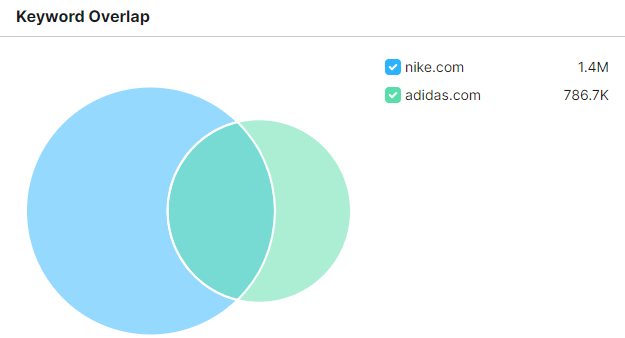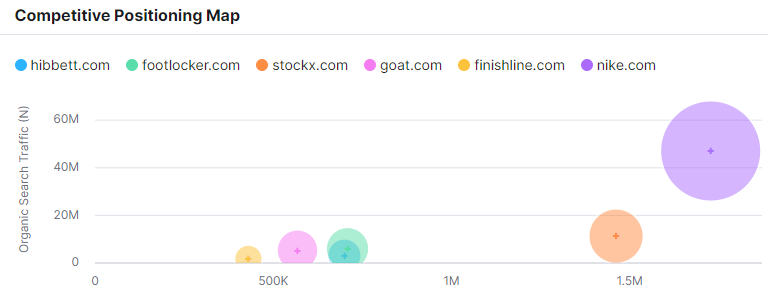For the desire to succeed as a business, you inevitably also have a desire to beat your competitors, and when it comes to content marketing, that is often a good strategy. Let’s see how you can target your competitors with content marketing and help you build your next content marketing strategy.
Beat Your Competitors With Content Marketing
There’s something to the why beat ‘em join ‘em strategy. But, for content marketing, it should be more like, why beat ‘em when you can join ‘em, then learn from what they are doing, adapt their strategies into yours, and then beat ‘em. Doesn’t roll off the tongue quite as well, but it is very effective.
Top 10 Reasons Why You Need Content Marketing
Should You Target Your Competitors Directly?
It’s an all too common idea. I have content, people are coming to it organically to learn about what product they should buy or service they should trust, why not use that leverage to bad mouth a competitor? Often this comes with the addendum of, “they deserve it.”

Now, this is one of those yes and no scenarios. Should you have marketing that compares your products or service directly against competitors using only the hard facts that people would be able to find—and verify? Absolutely! You can even explain why you would want certain features that you have over your competitors or why competitor features aren’t as important as they claim.
What you shouldn’t do is attack your competitors directly without verifiable facts to back it up. This happens all too often at the local level. Owners of competing businesses will take their competition personally and try to bring that personal competition into the public forum of content marketing or even social media marketing.
The problem is that this is a bad look to maintain. It makes you come off as a bully. People don’t want to work with a bully, they want to work with the company that is the best at what they do. And that’s how you should be portraying your business with content marketing.
Read More: How Content Marketing Can Boost Your Social Media Presence
Should You Use Your Competitor’s Content Marketing Strategy?
This is another yes or no question but it boils down to this: Are your competitors finding success with their content marketing? If you don’t know, there are tools such as SEMrush that can help you find that out. If your competitors are finding success, and their strategy speaks to clients that align with your business, then you should absolutely be copying them to a degree. Note that by copy, you should never just copy the content directly. That’s a recipe for losing ranking instead of gaining. Google is too smart for that.

A big part of content marketing is finding what is already working, even for competitors, and finding a way to do it better. In many cases, your competitors might have been in the content marketing game in your industry for longer than you. They’ve already put in a lot of work—some of which may just be trial and error—to find what gets traction, and you can cut out a lot of the trial and error for yourself by just trying to adopt their strategy and do it better.
You want to do this because you have a chance of beating them for ranking terms that they are currently beating you for. It will also give you a good base of content that you know works as you start to build out and evolve your content marketing strategy.
Obviously, it’s not a sound strategy to just stay in their footsteps forever, but it’s a very good place to start.
Read More: Why Search Engine Optimization Begins With Content
How to Improve Upon a Competitor’s Content Marketing Strategy?
We kept saying you have to do what you competitors are doing but better up there, but what does that mean? Essentially there are three easy ways you can outdo competing content:
- Use a Better Keyword
If your competitor is winning in a keyword space that doesn’t have a lot of competition, they may not have the best keyword. This is where it helps to know what exactly potential clients are searching so that you can build content that more directly answers their questions. - Have Better Content
Better content often means longer, but it also means more informative, better structured with headings and subheadings, utilization of things like lists (like the list we are using right now), and content that has less fluff or technical jargon. Remember, when it comes to content marketing, you should always be putting yourself in the searcher’s shoes. Someone who doesn’t know as much as you on a topic came here looking for answers, in their shoes, what would you hope to find? - Create Better Visuals
Technically, visuals such as images, diagrams, and even videos, are still considered content, but it can be helpful to think of them separately. Take a look at your competitor’s content. Does it have good visuals or any at all? Can you improve upon them? Make them cleaner? More informative? Or just provide more visuals to begin with?
If you don’t think you can do it better—everything can be done better, but maybe you just don’t have the resources—then you should still have content for any important topics on your website even if you don’t think that you will be able to rank highly for it.
Why? Because it will help you build a base to be able to rank for other topics down the road. It’s because having this other content on your website will help show to Google that you are an authority on the topic, even if you aren’t ranking for it.
Using Tools to Learn How to Build a Content Marketing Strategy Against Competitors
There are a lot of tools out there, but short of having access to your competitor’s analytics directly, the best is SEMrush. This is a pricey tool, but any reputable content marketing firm—like Phantom Copy—will have access to this tool for you.
Google might crawl the Internet, but in a way, SEMrush crawls Google. This means it sees what’s ranking for each keyword for any website. Using this tool, you can see what your competitors are and aren’t ranking for and you can even use tools like the Keyword Gap tool to compare your rankings directly to competitors to find what keywords you are strong with and what keywords you are weak or not ranking at all for.
SEMrush can also identify competitors as well. Often, especially early in a strategy, these competitors will be inaccurate, but once you are ranking, this tool will show you what websites are ranking for similar keywords and may help you identify competitors that you didn’t even know you had.

Interestingly, SEMrush can also help you explore keyword alternatives, analyze potential traffic from keywords, and explore keyword difficulty. You can certainly create a content marketing strategy without tools like SEMrush, but tools like this make it so much easier to find a direction, measure progress, and build from there.
Get Content Marketing Help From a Phantom
If this still sounds like a lot, it’s probably because it is. A content marketing strategy isn’t just something you turn on and don’t think about. Much like the rest of your business, it requires constant care. This may be too much for you to do yourself, and probably too little to justify hiring a full-time person to handle especially if you also include tool costs.
The best solution? Hire a Phantom to do it for you. At Phantom Copy, we employ industry veterans to handle your content and your strategy. They have years of experience building strategies and executing on them across multiple industries. What’s more, every Phantom is paid as a contractor for each client. This means they make more money while you pay less money, but it also means they have skin in the game when they are working for you. Reach out to us to hire a Phantom today!
